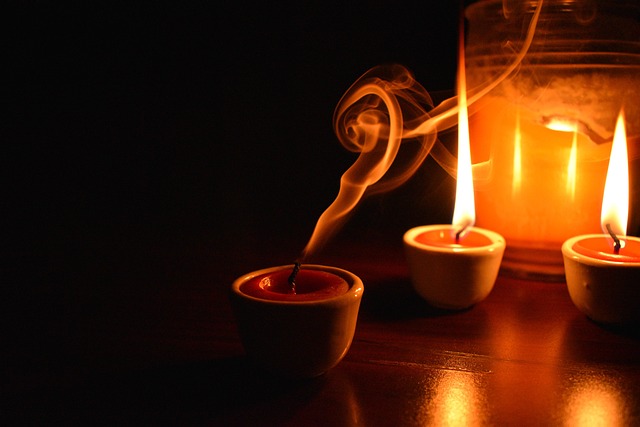Deities of Love in Wicca: Working with Aphrodite, Freya, and Eros
Introduction
In contemporary Wicca and eclectic pagan practice, love is honored as a powerful, sacred energy — one that can heal, inspire, and transform. Many practitioners work with specific deities who embody aspects of love: its tenderness, its desire, its fierce protective nature. This article explores three well-known figures often invoked in love workings: **Aphrodite**, **Freya**, and **Eros**. We’ll cover their mythic backgrounds, how Wiccans integrate them into ritual and devotional practice, correspondences, ethical considerations, and simple, respectful ways to work with each.
Wicca, Polytheism, and Deity Work
Understanding relationship models
Wicca is diverse — many practitioners are duotheists (honoring a God and a Goddess), others are polytheists, animists, or eclectic. Working with deities can be devotional (offering and relationship-building), functional (seeking aid in a specific area such as love or protection), or both. **Respect and consent** — toward both the deity and other humans — are essential.
Syncretism and cultural sensitivity
Aphrodite and Eros are Hellenic; Freya is Norse. When borrowing from different mythologies, be deliberate and respectful. Acknowledge sources, avoid essentializing living cultures, and prioritize ethical practice over “exotic” appropriation.
Aphrodite — The Greek Goddess of Love, Beauty, and Generative Power
Mythic profile
**Aphrodite** is traditionally associated with love, sexual attraction, beauty, and the creative, life-giving force. In Hellenic myth she emerges fully formed (in some accounts from sea foam), and her sphere includes romantic desire, artistic inspiration, and the social glue that binds human relationships.
Correspondences & symbols
- Planet: Venus
- Colors: rose, coral, gold
- Symbols: seashell, dove, rose, myrtle
- Offerings: roses, honey, wine, aphrodisiac foods (used thoughtfully), citrus, sea salt
Working with Aphrodite
Aphrodite is well-suited to rituals for self-love, beauty magicks, creative inspiration, and relationships grounded in mutual attraction and respect. A basic devotional practice might include creating a small altar with a rose, shell, and a bowl of seawater or salt, lighting a rose-scented candle, and speaking a heartfelt offering: gratitude for beauty, a request for confidence, or a prayer for the flourishing of existing love. **Always frame requests so they do not attempt to override someone else’s free will.**
Ritual idea: Aphrodite’s Confidence Bath
- Prepare a warm bath with sea salt, rose petals, and a few drops of jojoba or olive oil.
- Light a pink candle and place a small shell beside it.
- While bathing, visualize soft, golden light filling your chest — words of self-acceptance or an aphorism to the goddess work well.
- Give thanks aloud and let the candle burn safely; dispose of petals respectfully.
Freya — The Norse Goddess of Love, War, and Seiðr
Mythic profile
**Freya** (Old Norse: Freyja) is a complex figure: a goddess of love, fertility, sexuality, but also of sovereignty, magic (particularly seiðr), and a kind of fierce independence. She rides a chariot pulled by cats, owns the necklace Brísingamen, and claims half of the slain in battle — demonstrating the blend of erotic and warrior aspects.
Correspondences & symbols
- Realm: Álfheimr (associated with light elves)
- Colors: deep red, amber, ochre
- Symbols: cats, necklace (Brísingamen), amber, falcon cloak
- Offerings: mead, amber, rich foods, feminine-crafted items, small silver jewelry
Working with Freya
Freya supports lovers, fertility, and passionate sovereignty. She is also a teacher of magic — if you are drawn to working with desire as power (not merely romance), Freya’s energy can be empowering. Her practices often combine sensual offerings with ritual strength: wearing an amulet, asking for courage to claim love, or learning seiðr-style trance for deeper inner knowing. As with Aphrodite, emphasize consent and transformative growth rather than manipulation.
Ritual idea: Freya’s Claiming
- Create an altar with amber (or a golden stone), a bowl of mead (or sweet cider), and a small cat figurine or image.
- Light a deep-red candle and stand or sit firmly — this ritual is about claiming your right to desire and agency.
- Speak your intention in clear, assertive language: what you wish to claim (confidence, a relationship, a creative passion) and why it serves the good.
- Close with an offering of a sip of mead (or pour a small libation), and leave a token on the altar for three nights if possible.
Eros — The Primal Force of Desire
Mythic profile
**Eros** in Greek tradition represents passionate desire — sometimes as a primordial force (earlier cosmogonies) and sometimes as the playful winged child of Aphrodite. In contemporary magical work, Eros is invoked when the focus is raw attraction, the spark between two people, or creative sexual energy.
Correspondences & symbols
- Symbols: arrows, bow, wings, flame
- Colors: crimson, scarlet
- Offerings: spicy or sweet foods, pomegranate, figs, incense that stirs the senses
Working with Eros
Eros is direct and sometimes chaotic; his energy is best used to kindle attraction or creative libido in ways that are ethical and mutual. Small charms, focused visualizations, or a spirit-ally conversation can be appropriate. Avoid using Eros for manipulative glamour — instead, call on him to awaken qualities in yourself (confidence, magnetism, playfulness) that naturally attract others.
Ritual idea: Eros Spark
- Light a small red candle and hold a pomegranate seed or fig.
- Visualize an arrow of warm light shooting from your heart — not to pierce another, but to ignite your own radiance.
- Say a concise phrase like: “I call the spark that draws love that honors and returns.” Extinguish the candle safely.
Ethics, Consent, and Harm-Reduction
Ethical core: In Wiccan and pagan work, the principle of non-harm (often summarized as “harm none”) is central. When working with love deities always prioritize consent — for all people involved, including yourself — and avoid magics that coerce or remove free will.
Respectful practice checklist
- Never attempt love spells that bind another person against their will.
- Focus on changing yourself (confidence, presentation, boundaries) rather than trying to change others.
- Be transparent with partners about spiritual practices that affect relationships.
- Honor the cultural origins of the deities and avoid caricature; study traditional lore where possible.
Practical Correspondences for Love Work
Herbs & flowers
- Rose — affection, romance
- Lavender — calm, attraction
- Yarrow — courage in love
- Damiana — sensuality (use responsibly)
Crystals
- Rose quartz — self-love, compassion
- Moonstone — emotional receptivity
- Garnet — passion and grounding
Timing and festivals
Work with these deities at times that resonate: Venus-ruled days or the waxing moon for attraction; Beltane (May 1) and other fertility-linked sabbats for expressions of love and union. For Freya, consider connecting near times associated with Norse cycles or personal seasonal markers of transformation.
Building a Personal Relationship
Deity work becomes richer with sustained, sincere relationship. Keep a journal of offerings, dreams, and signs. Visit the altar regularly, and treat the relationship like any other: with respect, honesty, and curiosity. Gifts need not be grand — a poem for Aphrodite, a small amber bead for Freya, or a moment of play offered to Eros can all deepen connection.
Conclusion
**Aphrodite**, **Freya**, and **Eros** each present distinct facets of love: Aphrodite’s beauty and fertility, Freya’s fierce and sovereign passion, and Eros’s raw spark of desire. When working with them in a Wiccan context, combine mythic understanding with ethical practice. Center consent, personal growth, and respect for the cultural roots of each deity. With thoughtful devotion and integrity, love work becomes not only about relationships with others but also a sacred path to loving and reclaiming yourself.
A note on further study
If these deities call to you, read primary myths, consult reputable modern mythographies and practitioners from the relevant traditions, and consider joining local study circles to share practice in community. Blessed be.




